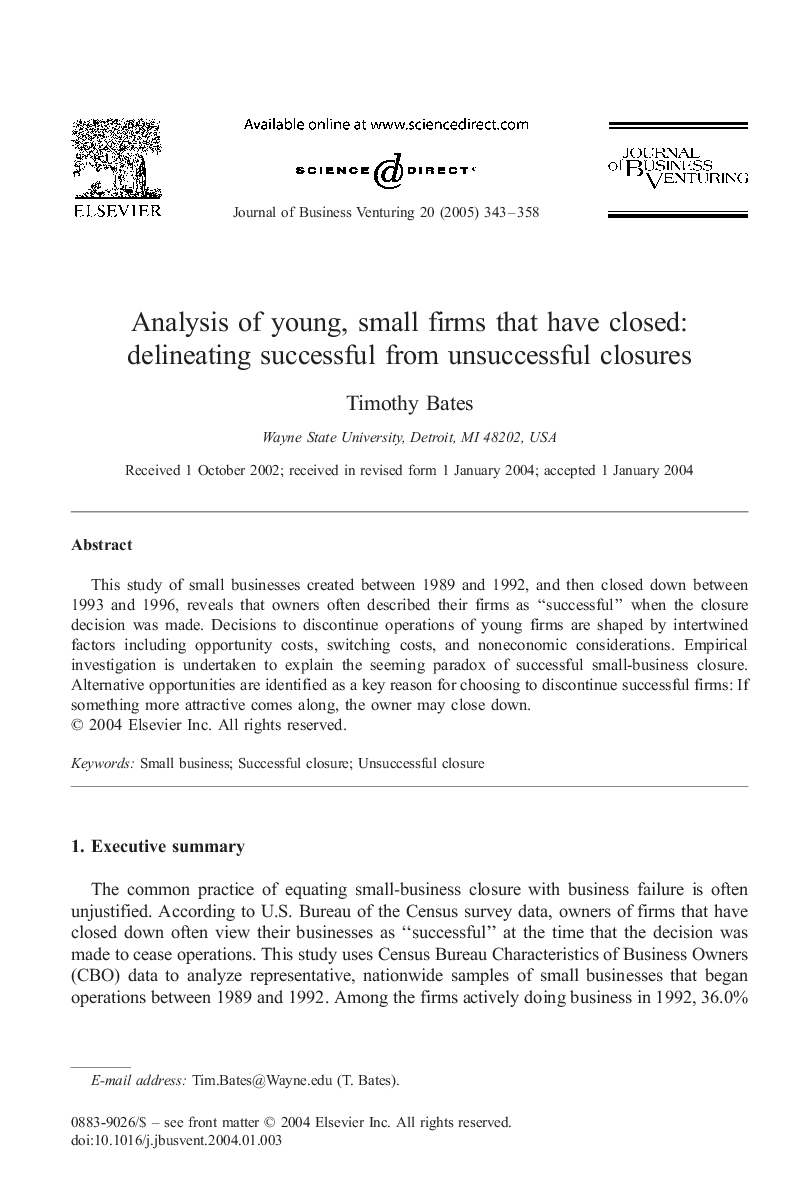| Article ID | Journal | Published Year | Pages | File Type |
|---|---|---|---|---|
| 10493957 | Journal of Business Venturing | 2005 | 16 Pages |
Abstract
This study of small businesses created between 1989 and 1992, and then closed down between 1993 and 1996, reveals that owners often described their firms as “successful” when the closure decision was made. Decisions to discontinue operations of young firms are shaped by intertwined factors including opportunity costs, switching costs, and noneconomic considerations. Empirical investigation is undertaken to explain the seeming paradox of successful small-business closure. Alternative opportunities are identified as a key reason for choosing to discontinue successful firms: If something more attractive comes along, the owner may close down.
Keywords
Related Topics
Social Sciences and Humanities
Business, Management and Accounting
Business and International Management
Authors
Timothy Bates,
